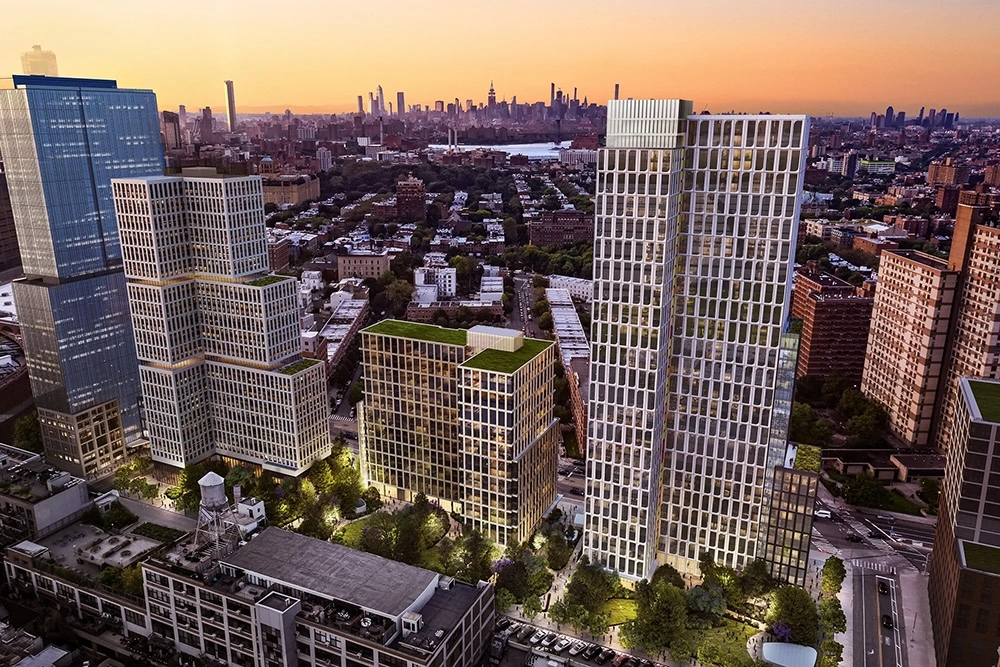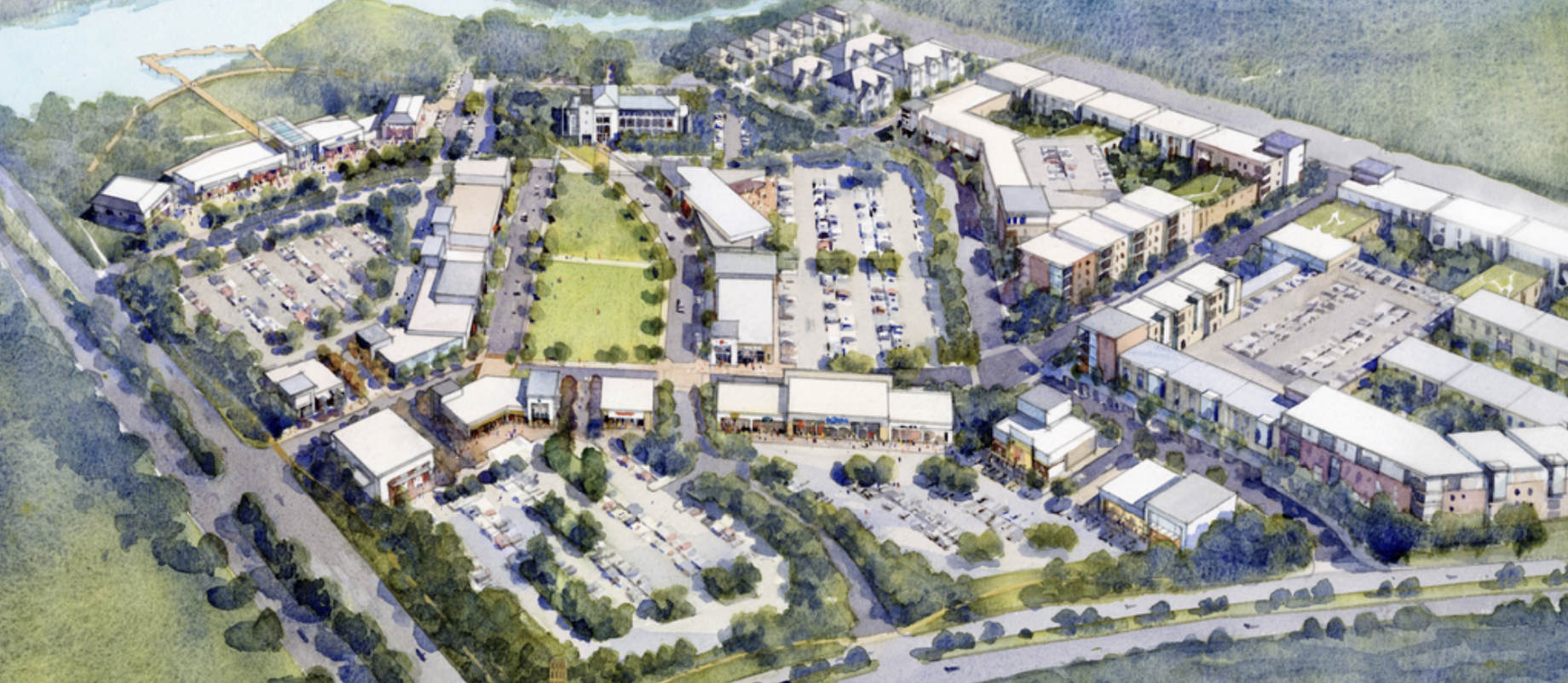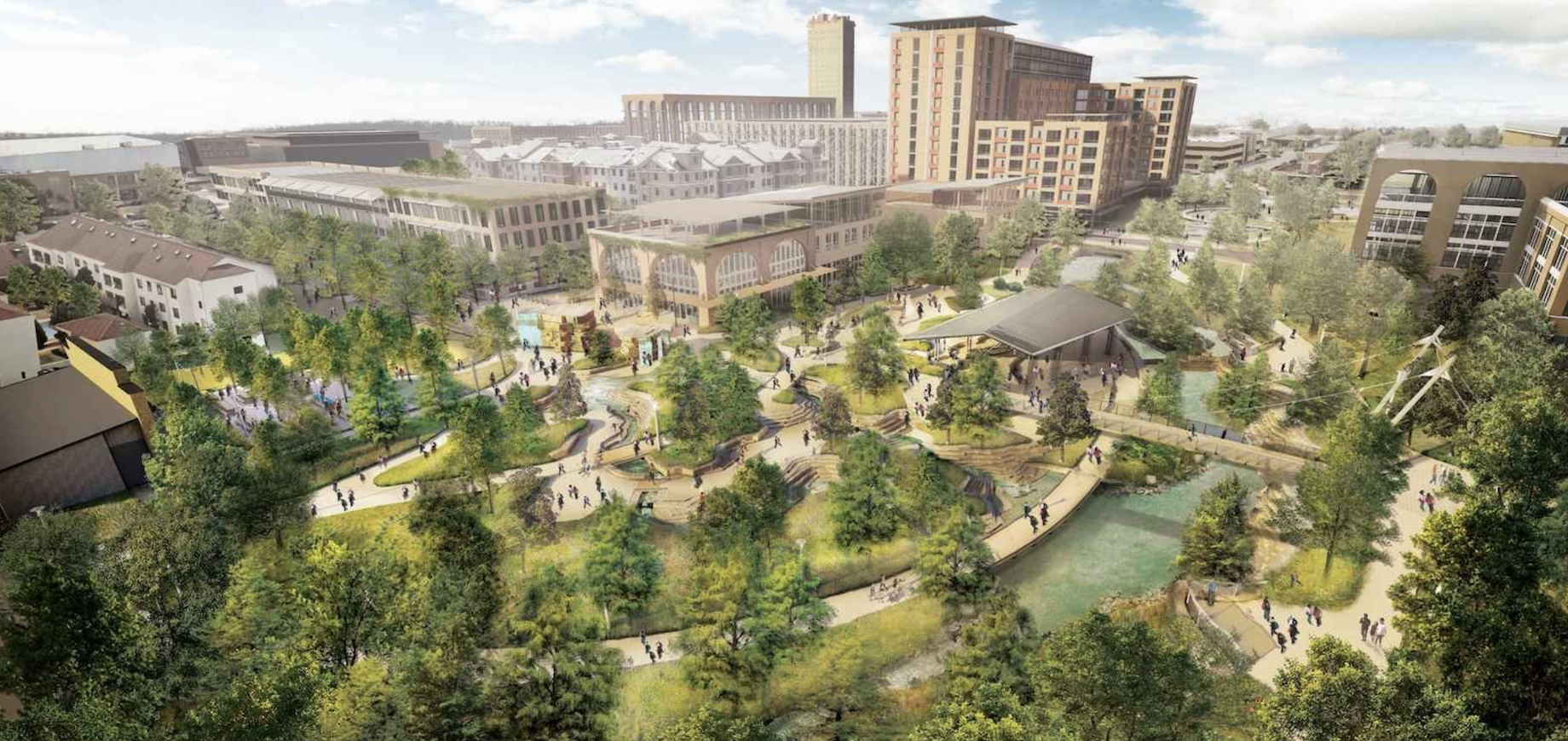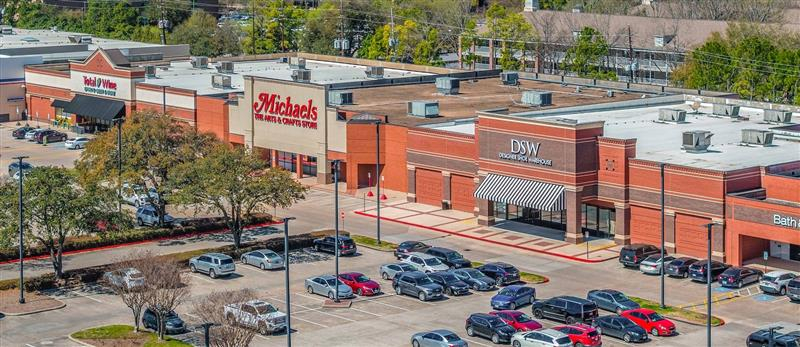Jump to …
Rezoning Approved for Queens’ Long Island City After Major Brooklyn Project Restarts
Texas’ Fast-Growing Metros Drive Major CRE Activity
Simon+ Omnichannel Rewards Program Debuts
Proptech Firm Altus Group Names New CEO After Strategic Review
Rezoning Approved for Queens’ Long Island City After Major Brooklyn Project Restarts
Sitting in the shadow of Manhattan, the Queens neighborhood of Long Island City is in store for a seismic change, 17 years after the Great Recession stymied massive momentum there.
The New York City Council has approved a rezoning plan that would bring nearly 14,700 apartments and 3.8 million square feet of retail, office and light industrial space to an area that, according to The New York Times, has been occupied mostly by warehouses and parking lots for decades. Construction in the 54-block zone is set for completion in 2033, according to City Council Member Julie Won, whose district includes Long Island City.

Long Island City
The plan provides nearly $2 billion in public funding for the neighborhood’s transformation, she said. According to New York City Mayor Eric Adams, it’s expected to generate almost $80 billion in economic activity over the next four decades.
This isn’t the first time Long Island City has geared up for a huge real estate development. In 2018, Amazon unveiled plans to build a headquarters campus in the neighborhood. Bowing to fierce opposition from some state and local politicians, Amazon canceled the project in 2019. Additionally, a residential redevelopment renaissance was underway in Long Island City until the Great Recession got in the way.
One borough away in Brooklyn, another Great Recession casualty is moving again, as well. The 22-acre Pacific Park, once known as Atlantic Yards, stalled due to the financial crisis and other factors but now has a new development team in Fortress, U.S. Immigration Fund, Cirrus Real Estate Partners and LCOR — in place. The mixed-use development, next to Barclays Center, will cost about $6 billion.

Plans for the Pacific Park development near Barclays Center in Brooklyn Rendering courtesy of Fortress Investment Group
Texas’ Fast-Growing Metros Drive Major CRE Activity
Considering Texas is home to seven of the 15 U.S. cities that grew the fastest from 2023 to 2024, it’s no wonder real estate there is in the spotlight. The biggest news flash: Dallas-Fort Worth was just ranked the top commercial real estate market to watch in 2026. A $3 billion master-planned community is coming to that metro, while a $1.4 billion mixed-use project is planned in Central Texas, and a more than 400,000-square-foot power center in Houston has a new owner.
Dallas-Fort Worth’s CRE Prospects Claim No. 1 Spot in PWC and ULI’s New Ranking
Dallas-Fort Worth, the largest metro area in the Lone Star State and one of the country’s fastest-growing metros, is the star of a new report on commercial real estate markets to watch in 2026. In PwC and the Urban Land Institute’s Emerging Trends in Real Estate 2026 report, Dallas-Fort Worth ranked first among U.S. metros for commercial real estate prospects next year. Each year, PwC and ULI survey interview hundreds of commercial real estate professionals for the report. The 2025 edition also placed Dallas-Fort Worth at No. 1. DFW “mirrors the national economy in its sector diversification, making it resilient and attractive for investment,” the 2026 report said.
The New York City metro area claimed four of the top 10 spots.
Overall Real Estate Prospects
1. Dallas-Fort Worth
2. Jersey City, New Jersey
3. Miami
4. Brooklyn, New York
5. Houston
6. Nashville, Tennessee
7. Northern New Jersey
8. Tampa-St. Petersburg, Florida
9. Manhattan
10. Phoenix
Two retail subsectors — lifestyle/entertainment and neighborhood/community centers — ranked in the top five among all subsectors for commercial real estate investment prospects, while standalone retail ranked third for development.
Construction Starts on $3B Master-Planned Community Near DFW
On cue, infrastructure and site development work is starting at a more than 1,500-acre site for a $3 billion master-planned community in Terrell, a Dallas-Fort Worth suburb. The project, Terra Nova, will include a 48-acre mixed-use component called Terra Nova Village that’ll offer more than 200,000 square feet of retail, restaurant and office space, Chron.com reported. The mixed-use element will complement 3,600 single-family homes and 1,200 multifamily units. The developer, Main Square Development, plans to build Terra Nova in 14 phases over a 15- to 20-year period.

The mixed-use Terra Nova Village will be part of the master-planned Terra Nova community in Terrell, Texas. Rendering courtesy of Main Square Development
Waco Advances $1.4B Downtown Mixed-Use Redevelopment
A mixed-use project designed to revitalize downtown Waco, Texas, will include about 520,000 square feet of ground-floor retail topped by residential and office space. The Texas Government Insider blog from consulting firm Strategic Partnerships puts the price tag of the four-phase Barron’s Branch District development at $1.4 billion.

The more than 5.5 million-square-foot Barron’s Branch District in Waco, Texas, will be built in four phases. Rendering courtesy of the city of Waco, Texas
The third phase — a new town center with retail, residential and office — is scheduled to start in late 2033 and be completed by the end of 2034. In all, the Barron’s Branch District development will span more than 5.5 million square feet, including a new city hall, offices for the Waco Independent School District coupled with 45,000 square feet of street-level retail, a 386,000-square-foot convention center, a 350-room hotel, a 2,000-seat performing arts venue and a multipurpose stadium. Buildout will last 12 to 20 years.
East Coast Investment Firm Enters Houston With 442,000-SF Power Center Buy
Baltimore-based real estate investment and management company Continental Realty Corp. has entered the Houston market with the purchase of a 442,000-square-foot open-air regional power center.

Continental Realty Corp. has acquired the 442,000-square-foot Commons at Willowbrook power center. Photo courtesy of Continental Realty Corp.
At the time of the deal, Commons at Willowbrook had an occupancy rate of 75%, the new owner said. Tenants include Academy Sports + Outdoors, HomeGoods, Marshalls, Total Wine & More, Ross Dress for Less, Chipotle, DSW, Five Below and Starbucks. Continental Realty has more than $4.2 billion in assets under management.
More From C+CT
Mixed-Use Megaprojects Multiply Nationwide
PGA Frisco: A Public-Private Partnership Driving North Texas’ Mega Mixed-Use Development
Karahan Follows Up Legacy West With Fields West
Cities Are Calling for Mixed-Use Development to Connect Convention Centers to Their Communities
Where Fans, Food and Foot Traffic Meet: Stadium Districts’ Retail Appeal
How Dedicated Data and Capital Markets Teams Drive Continental Realty Corp.’s Decisions
Simon+ Omnichannel Rewards Program Debuts
Simon has launched a new loyalty program for in-store and online shoppers, reflecting today’s emphasis on omnichannel rather than a battle between e-commerce and brick-and-mortar. Simon+ replaces the REIT’s Mall Insider, VIP Shopper Club and ShopSimon Rewards programs and gives members cash back, points and perks for shopping at Simon malls and outlet centers, at ShopSimon.com and on the ShopSimon app. Loyalty program members who make qualifying in-store or online purchases can claim rewards like photos with Santa, valet parking and ShopSimon.com discounts. Simon said more than 500 retailers participate in the program.
MORE FROM ICSC: The Halo Effect III: How Physical Stores Drive Online Sales
Proptech Firm Altus Group Names New CEO After Strategic Review
After mulling a sale of the company and other strategic alternatives, Altus Group — a publicly traded provider of commercial real estate software, data and analytics — has decided to keep operating as it has, although under a new CEO. Former CEO Mike Gordon, a member of the company’s board of directors since 2020, is returning to the company’s top job in the first quarter of 2026. Jim Hannon, who has left the company, had served as CEO since 2022.
Until he fills the CEO job, Gordon will serve as executive chair. Raymond Mikulich has stepped down as chair but remains a director. During the company’s third-quarter earnings call, Gordon said Altus “is at a critical inflection point.” At a Nov. 20 presentation for investors, Altus executives will release details about the company’s new “value creation plan,” including growth and profitability goals.
By John Egan
Contributor, Commerce + Communities Today